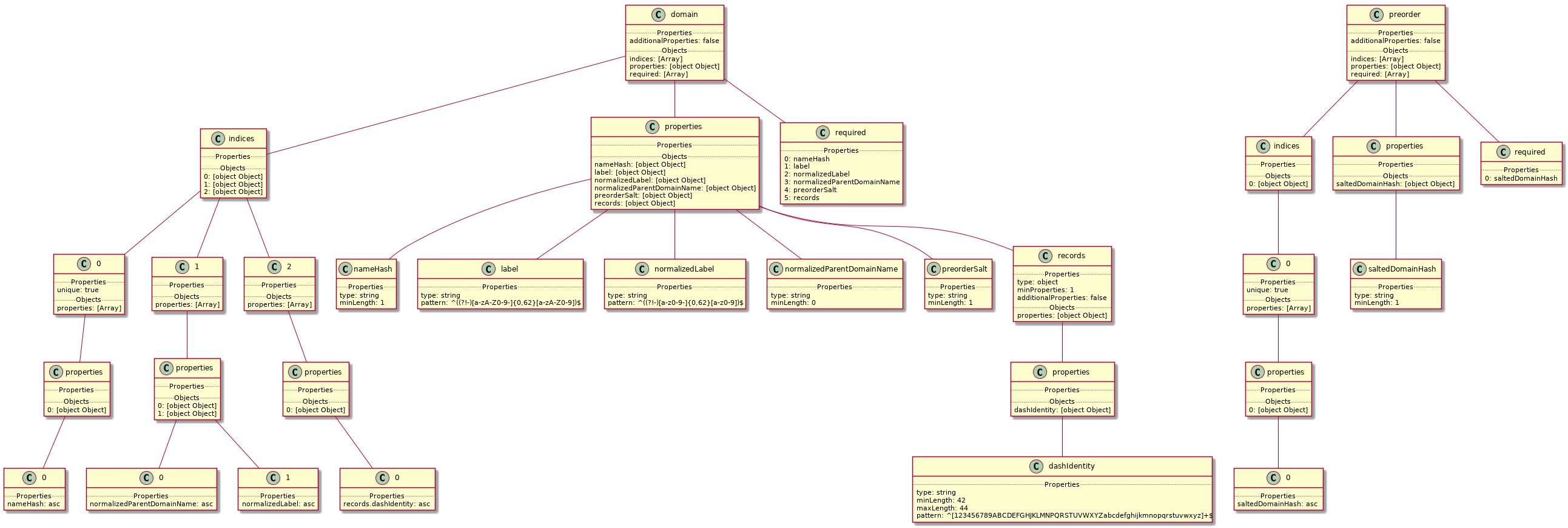Name Service (DPNS)
Enabling name-based user experiences
Overview
Dash Platform Name Service (DPNS) is a service used to register names on Dash Platform. It is a general service that is used to provide usernames and application names for identities but can also be extended in the future to resolve other cryptocurrency addresses, websites, and more. DPNS is implemented as an application on top of the platform and leverages platform capabilities.
DPNS DIP
The DPNS Dash Improvement Proposal (DIP) is now available with more extensive background information and details.
Relationship to identities
DPNS names and Identities are closely related to each other. Identities provide a foundation that DPNS builds on to enable name-based interactions -- a user experience similar to what is found in non-cryptocurrency applications. With DPNS, platform users or application developers register a name and associate it with an identity. Once linked, the identity private key allows them to prove ownership of the name to establish trust when they interact with other users and applications.
Details
Name Registration Process
Given the DNS-compatible nature of DPNS, all DPNS names are technically domain names and are registered under a top-level DPNS domain (
.dash). Some applications may abstract the top-level domain away, but it is important to be aware that it exists.
To prevent front-running, name registration is split into a two phase process consisting of:
- Pre-ordering the domain name
- Registering the domain name
In the pre-order phase, the domain name is salted to obscure the actual domain name being registered (e.g. hash('alice.dash' + salt)) and submitted to platform. This is done to prevent masternodes from seeing the names being registered and "stealing" them for later resale. Once the pre-order receives a sufficient number of confirmations, the registration can proceed.
In the registration phase, the domain name (e.g. alice.dash) is once again submitted along with the salt used in the pre-order. The salt serves as proof that the registration is from the user that submitted the pre-order. This registration also references the identity being associated with the domain name to complete the identity-domain link.
Implementation
DPNS names currently have several constraints as defined in the DPNS data contract. The constraints exist to maintain compatibility with DNS:
- Maximum length - 63 characters
- Character set -
0-9,-(hyphen), andA-Z(case insensitive)
Note: Use of
-as a prefix/suffix to a name is not allowed (e.g.-nameorname-). This constraint is defined by this JSON-Schema pattern in the DPNS data contract:"^[a-zA-Z0-9][a-zA-Z0-9-]{0,61}[a-zA-Z0-9]$"
Additionally, the DPNS data triggers defined in js-dpp enforce additional validation rules related to the domain document.
For more implementation details, please reference the open-source JavaScript DPNS client reference implementation found in the js-dpns-client repository. Additionally, the DPNS data contract is available in the dpns-contract repository.
Contract Diagram
This is a visualization of the JSON data contract as UML class diagram for better understanding of the structure. The left side shows the domain document and the right side shows the preorder document:

DPNS Contract Diagram
Click here to download a copy of this diagram.
Updated almost 3 years ago
